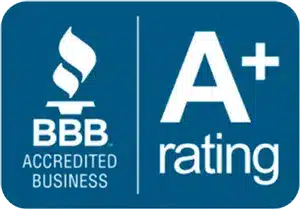Approximately 17,000 new cases of Hepatitis C are identified each year in the US. What’s more shocking is that around 75% of these cases are not even aware of the infection. A decade ago, curing Hepatitis C was considered a dream. But now, thanks to the advancements in scientific medicine, we have several treatment options for Hepatitis C, including highly effective antiviral medications. Early detection of Hepatitis C allows for early treatment, which contributes significantly towards managing the virus and improving liver health. So, if you have been noticing Hepatitis C symptoms, visit Equality Health in Norman, OK, and opt for the best Hepatitis C treatment.

Basics of Hepatitis C Treatment in Norman
Hepatitis C (also known as Hep C or HCV) is a viral infection that can turn into a serious liver disease if not treated properly. It can cause several long-term health complications, including liver damage, cirrhosis, liver failure, liver cancer, and even death. There are six basic genotypes of Hepatitis C, with genotype 1 being the most common in the US.
The only major solution against Hepatitis C is personalized treatment options tailored to the patient’s needs. Since every patient is different, medical professionals at Equality Health develop customized treatment plans for each of them. However, the goal of treatment is common: achieving sustained virologic response (SVR). SVR is achieved when Hepatitis C is not detected in the patient’s blood after 12 or more weeks of completing the treatment.
The most preferred treatment to achieve SVR is direct-acting antiviral (DAA) medications. DAA tablets are by far the safest and most effective medications for treating Hepatitis C. These tablets, generally taken for 8 to 12 weeks, are proven to clear the virus completely in more than 90% of people with Hepatitis C. However, these tablets do have side effects, so a patient must consult a professional before any treatment.
Evaluation and Monitoring
Your first visit with a professional healthcare specialist here in Norman, OK, after being diagnosed with Hepatitis C will revolve around a detailed evaluation of your health. This evaluation will include your medical history, liver function tests, and viral load testing. The purpose of these evaluations is to help us develop effective treatment plans to treat you. Liver function tests measure certain enzyme levels and proteins in your blood, allowing us to monitor your liver damage. On the other hand, the viral load test determines if the HCV is present in your bloodstream and in what amount.
Based on the evaluation, we create and communicate your treatment plan to you, which may include further laboratory tests and follow-up visits. Every patient responds differently to treatment methods. Follow-up visits and evaluation techniques allow us to properly monitor each patient and their response to treatment.
Antiviral Medications for Hepatitis C
Hepatitis C is treated with oral pills called antiviral medications. Usually taken as one pill a day for 8 to 12 weeks, these medications are extremely effective against the virus. Besides that, other benefits of taking antiviral medications for Hepatitis C that we provide here in Equality Health at Norman, OK, include–
- Clear the HCV from your body permanently
- Slow down (or stop) the damage to your liver as you begin taking it
- Reduce the risk of cirrhosis (liver scarring)
- Reduce the risk of liver cancer
- Reduce the risk of liver failure
- Reduces the chances that you will need a liver transplant
Different Classes of Direct-Acting Antiviral (DAA) for Hepatitis C
DAA medications are classified based on their attacking mechanism against HCV. This classification allows us to prepare a properly combined dose for the patient. It becomes even more critical when we are treating a patient who has been previously treated with DAA.
There are three classes of DAA medications–
NS3/4A protease inhibitors
Some example of NS3/4A protease inhibitors include–
- Telaprevir: Used in combination with other DAA
- Boceprevir: Used in combination with other meds for Hepatitis C genotype 1
- Grazoprevir: Antiviral for Hepatitis C infection
- Simeprevir: Nonstructural protein 3 and 4a protease inhibitor
- Glecaprevir: Protease inhibitor for Hepatitis C infection
NS5A polymerase inhibitors
Some examples of NS5A polymerase inhibitors include–
- Ledipasvir: Used in combination with other antiviral agents
- Daclatasvir: Used in combination with other antiviral agents
- Ombitasvir: Used in combination with other antiviral agents
- Elbasvir: NS5A inhibitor for Hepatitis C infections
- Pibrentasvir: NS5A inhibitor for Hepatitis C infections
- Velpatasvir: For chronic HCV patients without cirrhosis or with compensated cirrhosis
NS5B polymerase inhibitors
Some examples of NS5B inhibitors include–
- Sofosbuvir: Reduces HCV in the body but may not prevent the spread
- Dasabuvir: Non-nucleoside NS5B polymerase inhibitor that binds the enzyme outside its active side
Treatment Duration and Response Rates of Hepatitis C Treatment in Norman, OK
Treatment of Hepatitis C in Norman, OK here at Equality Health is usually 8 to 12 weeks long. However, it can last as long as 16 weeks in some cases. Patients who have experienced severe liver damage may even require 24 weeks of treatment, but it’s very rare.
The duration of treatment generally depends on–
- Symptoms
- Liver condition
- Medication
- Genotype of HCV
- Patient characteristics
- Previous history of Hepatitis C
The preferred treatment method for Hepatitis C is direct-acting antiviral agents (DAAs). DAA’s sustained virologic response (SVR) rate is above 90%. In the first two weeks of treatment, most patients will have a significant drop in the viral load. Some patients will notice their viral load becoming undetectable as early as in fourth week.
On the other hand, some patients take longer until their viral load becomes totally undetectable. However, most of the time, SVR is achieved after 12 weeks of completion of therapy. If a patient has achieved SVR, they are cured of Hepatitis C.
Adherence and Supportive Care for Hep C Treatment
It’s important to adhere to treatment schedules and medication guidelines for effective treatment. You can’t beat Hepatitis C if you often forget to take your pill or miss out on follow-up appointments with your doctor. You can only get proper access to supportive care if you take the initiative to fast-track your health.
Here are some tips, tricks, and lifestyle changes that, if you adhere to them, can help you get back in charge of your health–
- Avoid alcohol to prevent liver damage
- Consult your doctor about a liver-healthy diet
- Take all your DAA medication as prescribed (don’t skip any doses)
- Stay in touch with your pharmacist to ensure ready refills
- Avoid using any drugs or alternative medication during your treatment
- If you’ve been taking any other medication for any reason, don’t forget to tell your doctor about it
- If you have any other chronic or acute condition, consult your doctor about it
- Avoid sharing needles with people
- Show up for follow-up appointments and blood tests
It’s crucial to adhere to these treatment rules in order to get effective results of the treatment. If you are facing any issues during the treatment, like anxiety, depression, or anorexia, Equality Health provides constant support and care services to help you heal. Moreover, we offer treatment options for other STDs, such as HIV treatment in Norman, OKC and more.
Potential Side Effects and Management Strategies
Although DAAs are proven to be an effective treatment method to cure Hepatitis C, it does have side effects. These side effects affect each patient differently. If you know the side effects beforehand, it will be easier for you to manage them.
DAA treatment uses a combination of medications, each of them having its range of side effects. Your doctor will be able to tell you exactly what side effects you can expect with your doses. However, some potential side effects of DAA meds include–
- Flu-like symptoms (headache, fatigue)
- Low red blood cell count
- Gastrointestinal problems (nausea, diarrhea, abdominal pain, vomiting, low appetite)
- Insomnia, depression, anxiety, anorexia
- Skin reactions (itching, redness, rash)
- Weakness, confusion, nervousness
- Pain in the back or joints
- Hair loss
Although this may seem like a long list, it’s important to note that most patients only experience 2 or 3 of them, while others don’t experience any. Side effects may vary in patients because they are treated with different combinations of DAAs.
How to Manage Side Effects of Hepatitis C Treatment?
If you experience any adverse effects during your HCV treatment, there are ways to manage them–
- Depression, Anxiety, Anorexia – Some people tend to feel depressed or anxious during their treatment. If you are one of those, consult your doctor. At Equality Health, we can refer you to mental health services, including counseling, support, and therapy.
- Gastronomical Problems – Stomach problems like diarrhea, vomiting, or nausea are pretty common side effects of DAA. To avoid these problems, take your medication with food. Try to avoid salty, spicy, acidic, or fatty foods. Eat smaller and healthier meals. Consult your doctor about any medication that might help with nausea and vomiting.
- Flu-like Symptoms – In case of fever, headache, and fatigue, consult your doctor about taking ibuprofen or acetaminophen for about 30 to 60 minutes before taking your medicine. Your doctor may be able to suggest a better alternative, depending on your condition.
- Skin Conditions and Dryness – To manage skin conditions, use moisturizers and lotions. They can help with dry skin and irritation. Avoid long hot showers and baths. If you are feeling dryness in the mouth, brush your teeth frequently and try sour candies. Always stay hydrated, as it also helps with dryness of the mouth and skin.
If you face any side effects, make sure you openly communicate it with your doctor before you take any action. Medical professionals at Equality Health are always available for support and communication about side effects and to determine the best course of action.
Treatment Outcomes and Long-term Follow-up
Once you’ve achieved cured status, you may think Hepatitis C is behind you. That is true, but only partially. Once your Hepatitis C blood tests stop detecting the virus, you are considered to have achieved sustained virologic response (SVR).
Here are some reasons why long-term follow-up in Equality Health at Norman, OK, can be beneficial for you–
The virus can come back.
Even after you are cured, it doesn’t mean that the virus will never come back. You can become reinfected if you continue to engage in risky behaviors. Since you may not even feel the symptoms of the virus, it’s important to follow up with your doctor and get a checkup at least once a year.
Moreover, the damage that the virus has caused in the first place to your body can be resumed by things other than the virus. For instance, liver damage can stop once you are cured of Hepatitis C, but drinking alcohol after the treatment can continue that damage.
You may have liver damage.
Antiviral medication can clear out the infection, but not the damage it has caused in the meantime. Following up with your doctor after the treatment will allow you to get tested for cirrhosis, which can be life-threatening. You will need to continually see your doctor at least twice a year to monitor your liver scarring, especially if you drink.
It can help with post-HCV lifestyle changes.
Long-term follow-ups will let you know the do’s and don’ts of post-HCV life. These regulations can be related to alcohol consumption, supplements, weight maintenance, diet, and more. Providers at Equality Health are always available for personalized healthcare support and effective follow-up treatments and consultancy. We also offer PrEP for HIV prevention in Norman that allows people in possible contact with HIV to have a safety barrier of prevention.
Contact Equality Health For Hepatitis C Treatment In Norman, OK
Hepatitis C is a viral infection that comes with many complications, such as liver damage. However, Hepatitis C doesn’t have to be that scary for anyone. If you’ve been noticing HCV symptoms or finding it hard to deal with post-HCV life, you can access proper Hepatitis C treatment with Equality Health, along with continuous support and care. We also provide HIV testing, HIV treatment, Hepatitis C testing, PrEP for HIV prevention, STD testing, and STD treatment in Norman. Don’t let Hepatitis C stop your life; beat it and carry on! Make your appointment today.
Frequently Asked Hep C Treatment Questions (FAQs)
You can get qualified and effective Hepatitis C treatment in Norman, at Equality Health. We have experienced professional healthcare specialists who test and diagnose your Hepatitis C in a safe, discreet, and comfortable environment. Additionally, our treatment process is affordable, reliable, and easily accessible for everyone. Whether you are experiencing Hepatitis C symptoms or want to get support for your post-Hepatitis C life, we can help you.
The most preferred and effective method for Hep C treatment is using direct-acting antiviral (DAA) tablets. Direct-acting antiviral tablets are noninvasive, and by far the safest option against Hepatitis C. DAA pills are highly effective at clearing the infection and stopping liver damage. These tablets manage to cure more than 90% of people suffering from Hepatitis C. Generally, doctors recommend these tablets to patients for 8 to 12 weeks, but the doses can change depending on various factors.
Yes. Hepatitis C treatment is covered by insurance. Equality Health has partnered with multiple insurance companies and networks to ensure that the patient is taken care of with affordability. We make sure that everything from copay to deductible to prior authorization is managed smoothly. We look at every scenario to see what you can afford because we never let a patient walk away, whether or not they are insured.
After the diagnosis, your doctor will begin your DAA tablet treatment, which generally lasts for 8 to 12 weeks. After the completion of DAA treatment, you will be tested for Hep C viral load again. If the virus is gone, it means you are cured, and you only have to come for follow-ups. However, if the virus is still present, we will come up with a plan to help cure you of hepatitis C.
Yes. Direct-acting antiviral tablets are made of different inhibitors and their combinations, each coming with a different set of side effects. Some potential side effects of Hep C treatment include–
- Flu-like symptoms – Headache, Fatigue
- Gastronomical problems – Nausea, Diarrhea, Abdominal pain, Vomiting, Low appetite
- Skin reactions – Itching, Redness, or Rash
- Depression
- Hair loss, and
- Low RBC count


